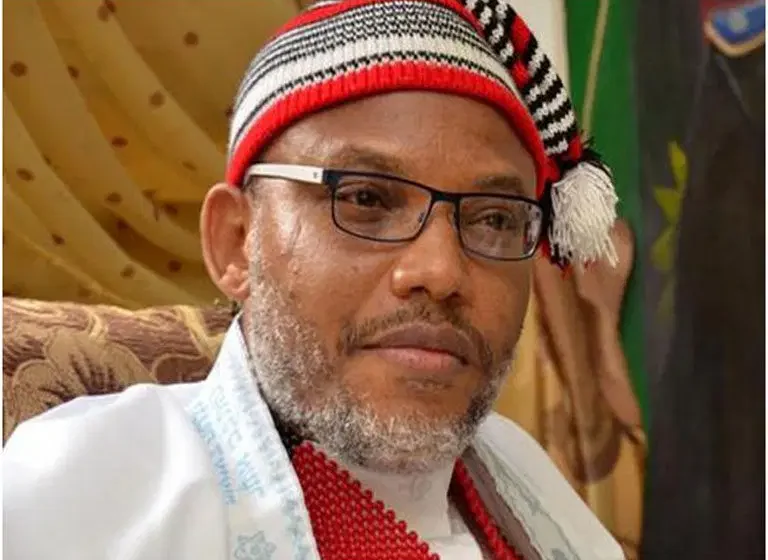Court sets Oct 10, 2025 for motion to halt trial of Nnamdi Kanu

IPOB’s secessionist leader. Mazi Nnamdi Kanu. Photo Credit- Vanguard
The Federal High Court in Abuja has scheduled October 10, 2025, to deliver a ruling on a motion to stop the ongoing terrorism trial of Nnamdi Kanu, the leader of the Indigenous People of Biafra (IPOB), a group advocating for the secession of southeastern Nigeria to revive the Biafran state. The decision, reported by Vanguard Newspapers, comes amid heightened legal and security scrutiny surrounding Kanu’s case, which has drawn significant national and international attention.
Nnamdi Kanu, who has been in custody since his controversial extraordinary rendition from Kenya to Nigeria in June 2021, faces charges of terrorism linked to his pro-Biafra broadcasts. The case traces its roots to the 1967-1970 Biafran War, a conflict that resulted in over one million deaths and left lasting ethnic tensions, particularly among the Igbo people of southeastern Nigeria, whom Kanu represents. Today’s court session, held under tight security with limited public access, concluded with an adjournment, reflecting the sensitive nature of the proceedings.
The motion to halt the trial stems from a no-case submission filed by the legal team of Nnamdi Kanu, arguing that the prosecution’s evidence, presented through witnesses who repeatedly admitted to gaps in their testimony, such as saying “I don’t know” or “I don’t remember” over 80 times during cross-examination, fails to meet the legal standard of proof beyond reasonable doubt, according to a recent BBC Pidgin report. The defense also contends that evidence introduced after the trial began and the lack of independent investigation into witness statements undermine the case’s fairness. Despite the Federal Government closing its case in June 2025, the court’s decision to delay the ruling has kept Kanu’s legal fate in limbo.
RELATED STORIES
DSS alleges Nnamdi Kanu’s radio broadcasts incites violence
Kenyan court declares Nnamdi Kanu’s rendition to Nigeria illegal… what to know
Premature campaigns, failing governance: The misplaced priorities of Nigerian politicians
Kanu’s detention has been marred by controversy, notably after a 2023 UK High Court ruling recognized his unlawful rendition from Kenya, a practice the United Nations Working Group on Arbitrary Detention has deemed a violation of international law. The Kenyan High Court echoed this sentiment in June 2025, declaring his abduction illegal. Despite these findings, Nigerian authorities have maintained his detention, charging him with acts including inciting violence against security forces and economic sabotage through broadcasts allegedly encouraging attacks on government facilities.
The trial’s slow progress, spaning four years without a final verdict, contrasts sharply with global standards. The UN Human Rights Council’s 2012 report recommends that trials conclude within two years to prevent arbitrary detention, a threshold Kanu’s case has exceeded. His legal team, led by senior advocates including Kanu Agabi, has filed a 2025 suit demanding a fair trial within a reasonable timeframe, further intensifying calls for judicial reform.
Supporters, including IPOB members and Igbo communities, view Kanu’s plight as a symbol of broader marginalization, with posts on social media today expressing prayers for his release and labeling the trial a “miscarriage of justice.” Critics, have questioned the legality of a trial stemming from an abduction, arguing it breaches international norms. Meanwhile, the Nigerian government defends the prosecution as necessary to curb secessionist violence, citing incidents like the 2021 killing of former presidential aide Ahmed Gulak, for which Kanu’s group has been implicated, though evidence remains contested.As the October 10 ruling date approaches, Kanu’s case continues to highlight the intersection of legal, political, and historical grievances in Nigeria, with potential implications for national unity and international human rights discourse.

